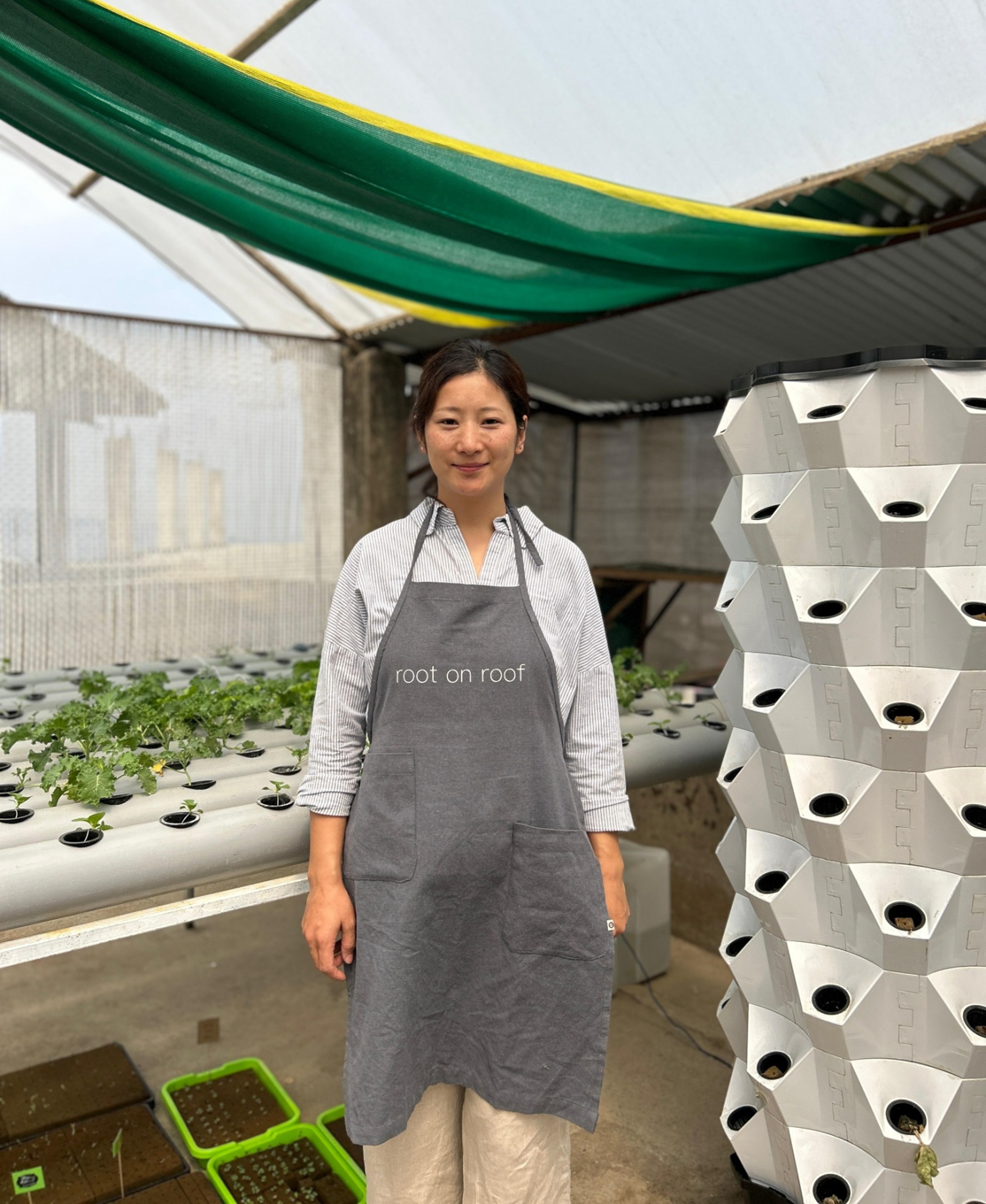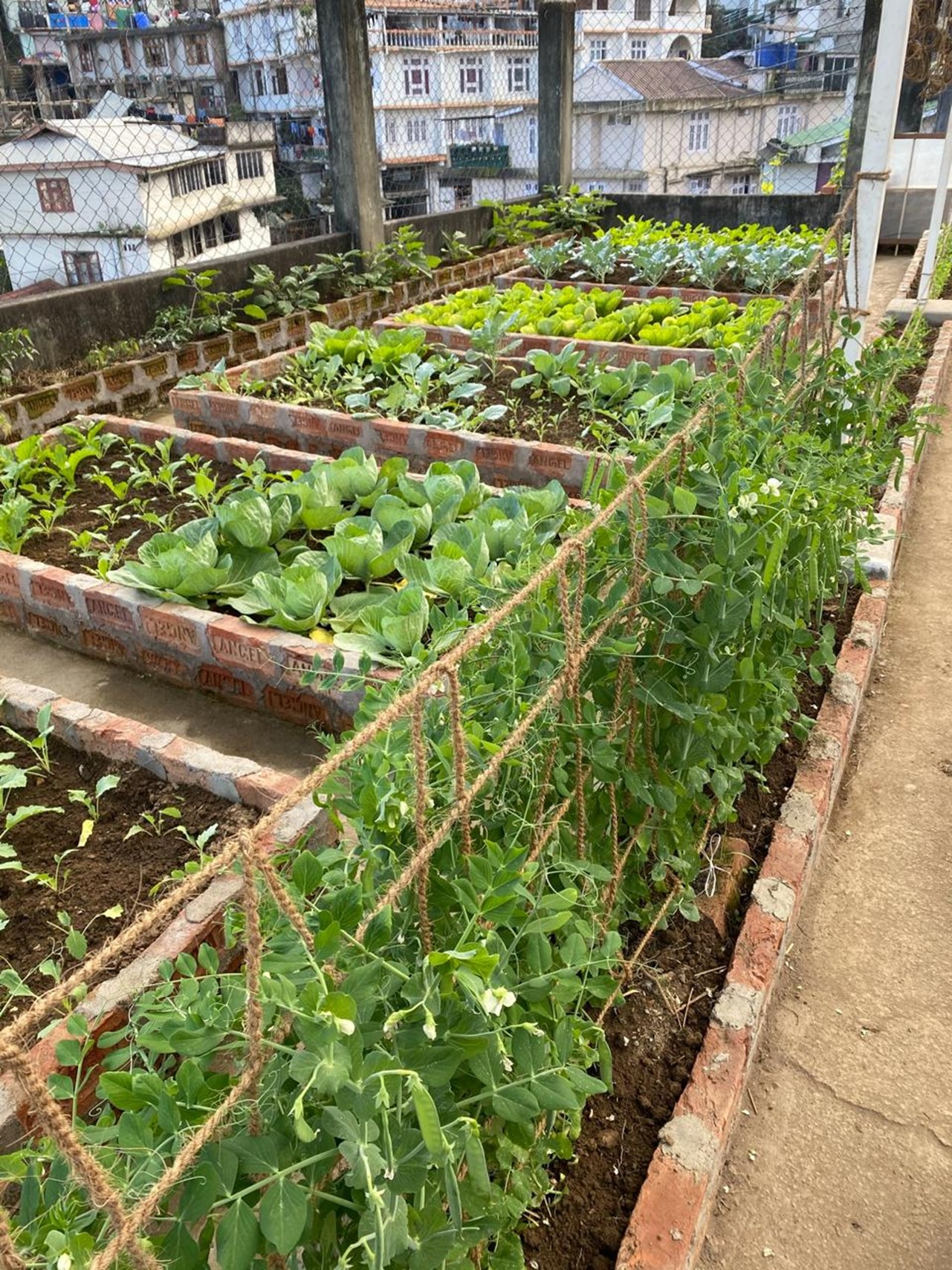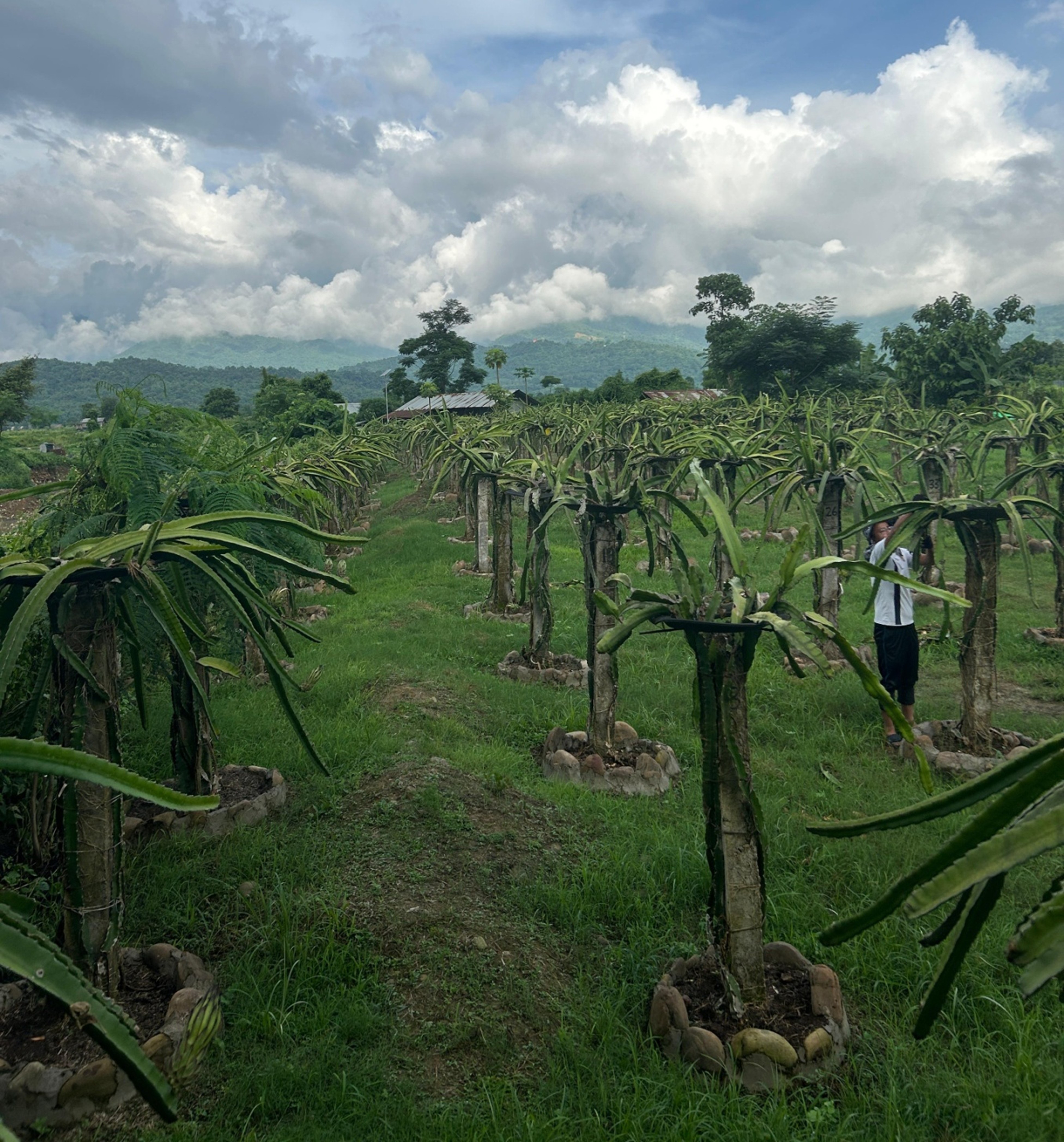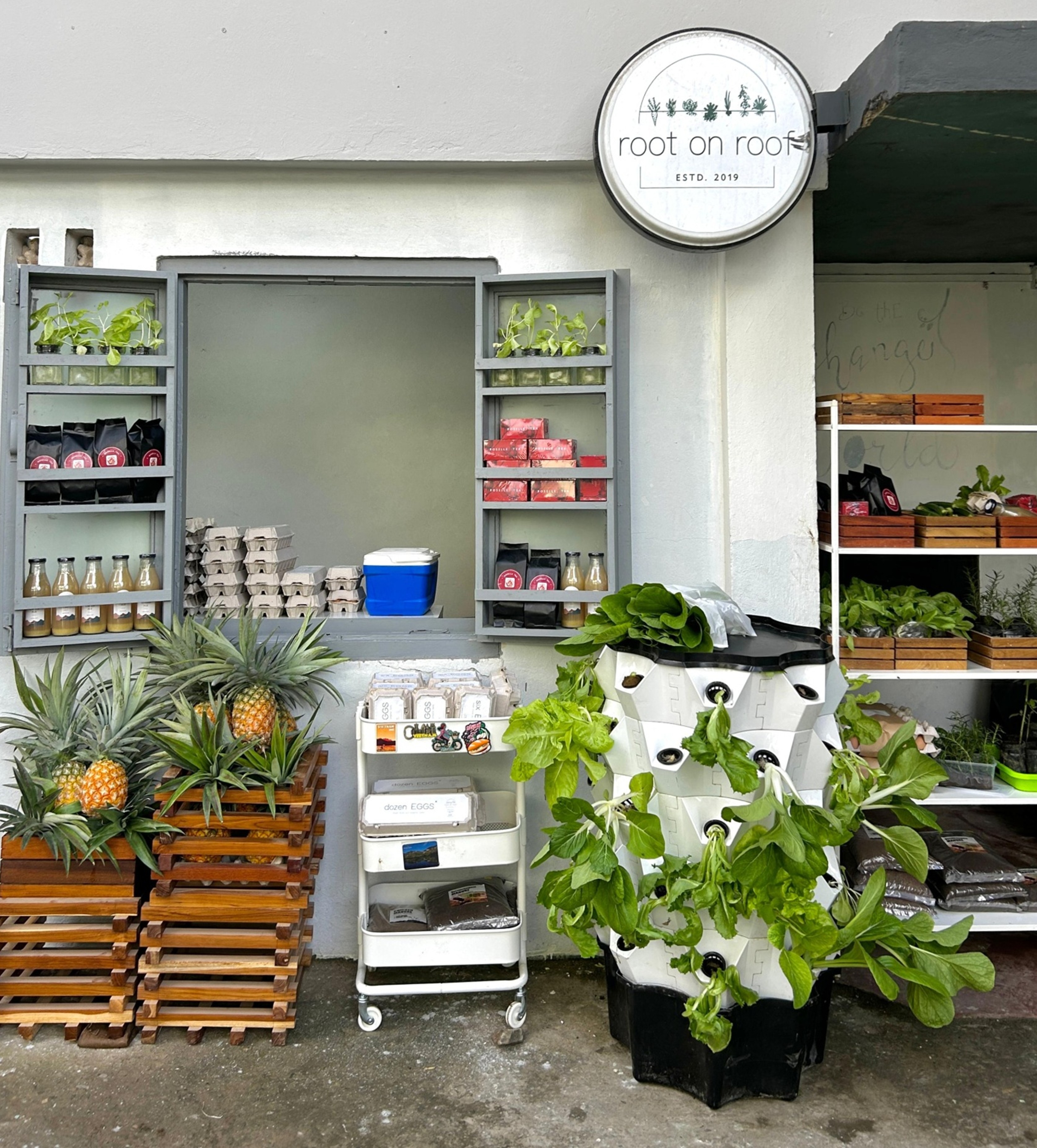Nurtured by a deep love for working with her hands, Leginino Yhoshü found joy in transforming that passion into something meaningful through farming.
Share

DIMAPUR — Nurtured by a deep love for working with her hands, Leginino Yhoshü found joy in transforming that passion into something meaningful through farming.
Her journey began in Kohima, where she completed her early schooling at Little Flower School before continuing at St. John Higher Secondary School in Dimapur. She pursued higher secondary education at Kohima Science College and went on to earn a Bachelor's degree in Agriculture from the School of Agricultural Sciences and Rural Development (SASARD), Nagaland University.
In 2019, Yhoshü began her farming journey by starting a Dragon fruit farm. A year later, following an internship at “Happy Vegi”, a commercial farm in Vietnam, she founded “Root on Roof”, an urban rooftop garden in Kohima that reflects her vision for sustainable and meaningful cultivation in urban spaces.
Also read: Bees and Business: Insights from the founders of JOME Foods
In this interview with Eastern Mirror, Leginino Yhoshü, founder of “Root on Roof”, sheds light on the growing importance of urban farming and offers insights for students and aspiring agripreneurs on how farming can be both a sustainable livelihood and a thriving business in urban settings.
Can you explain what urban farming is and why it matters today?
Urban farming means growing food in city spaces like rooftops, balconies, or community gardens. As the urban population increases, the demand for food is also increasing, and urban farming is a wonderful way to make fresh produce available to people.
Urban farming helps reduce transport costs, strengthens food security, and provides easier access to the market. It also addresses environmental issues. With more green spaces, we have cooler cities and cleaner air, and it is also a great way to recycle organic waste into compost.
I have a very small but efficient and reliable team. Without them, it would be quite an impossible task. I set out clear task divisions and supervision, and I am also always involved hands-on in all the tasks. Crop scheduling is vital, and having a clear crop schedule makes the work much easier.
How do technology and innovation make farming more efficient and sustainable?

Technology has certainly eased the work of farmers and made it less labour-intensive. Innovations and tech like automated irrigation, brush cutters, and polyhouses save time and energy and make farming more enjoyable. Having the right tech and tools that fit your farm’s scale and needs usually translates to more efficiency and less wastage.
Do students need to study agriculture formally (if yes, what courses would you recommend), or can they learn by doing?
Formal education offers a good foundation in core disciplines and equips students with the knowledge necessary for a broader understanding of agriculture. Institutions like the School of Agricultural Sciences (SAS), Medziphema, offer comprehensive programmes—including vocational training, bachelor's, master's, and PhD degrees—that combine theoretical knowledge with practical experience. So, formal education is quite helpful, and it is very broad. Through formal education, you can have careers in teaching, research, and technology development, all related to agriculture.
Nevertheless, farming is very much something that you can learn by doing. Perhaps most of the farmers in the state and even around the world might not necessarily have a formal degree in agriculture. With hard work, dedication, and a zeal for farming, it is possible.
What are the most important skills—both technical and soft—that an agripreneur should develop?
On the technical side, market research and planning are essential. Conduct thorough research before initiating any project—be it production, processing, or marketing. Assess factors like climate suitability, market demand, investment requirements, equipment selection, risk analysis, and profitability.
Technology integration is equally important. Embrace digital tools and platforms for precision farming, data analysis, and online marketing. A strong online presence can enhance visibility and customer engagement. Resource management also plays a key role. Efficiently manage resources such as water, soil, and labour to optimise productivity and sustainability.
Regulatory knowledge is another vital skill. Stay informed about local agricultural regulations, licensing requirements, and quality standards to ensure compliance and build trust with consumers.
On the soft skills side, hard work and consistency are crucial. Dedication and perseverance are key to overcoming challenges and achieving long-term success. Adaptability is important because the agricultural sector is dynamic; being open to change and innovation helps in staying competitive.
Communication and networking skills are essential as well. Effective communication fosters strong relationships with customers, suppliers, and stakeholders, while networking opens doors to new opportunities. Finally, professionalism is fundamental. Maintaining a professional attitude builds credibility and instills confidence among partners and clients.
How can students start experimenting with farming in small ways at home or in school?
Kitchen gardens are a good place to start. You can learn about so many plants, which we consume regularly; you can learn about soil, irrigation, the seasons, etc. It also helps if one has an interest in the flora around us.
Schools and colleges can start gardening clubs, organise workshops for students, arrange farm visits, and even have gardens/demonstration plots on the campus to encourage learning by doing.
Can farming be a sustainable career option in cities like Kohima and Dimapur?

Absolutely. Places like Dimapur and Kohima, and other urban areas, have a growing demand for fresh, organic produce. People are becoming more health conscious, and if we are what we eat, there is no substitute for fresh, organic produce. So, the market is definitely there.
How does one turn farming into a business rather than just a livelihood?
To turn farming into a business, you must treat it like any other enterprise—focus on quality, branding, consistency, and customer relationships.
How do you market and sell your produce?
I am very fortunate to have supportive customers who buy regularly from me. We also supply to marts in Kohima. Just recently, we have started running a “Farm Shop” every Tuesday, from 3 pm to 6 pm, where we sell our produce. We also provide home delivery services within Kohima.
Do you think farming can compete with other career choices in terms of income and growth?
The primary goal for me has always been to focus on quality produce and not necessarily on profit or income generation because I believe that that follows automatically when you put in the hard work and the quality of your produce is good.
Based on my experience, we must be innovative. It pays less to do what everyone is doing. If you can identify the demands and gaps in the market and offer innovative solutions, the scope is limitless.
Farming, as a career, can surely compete with other careers in terms of income and growth. But more than that, the satisfaction you get from farming is more than any monetary benefit.

RAPID INSIGHTS
What’s your favourite crop to grow?
Fruits like papaya, dragon fruit, and banana—the wait is long, but the reward is sweet.
One tool you cannot live without on the farm?
A spade.
Your favourite farming quote or proverb?
“The best time to plant a tree was 20 years ago. The second-best time is now.”